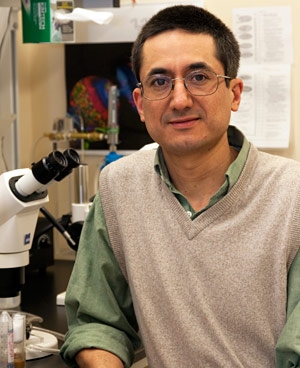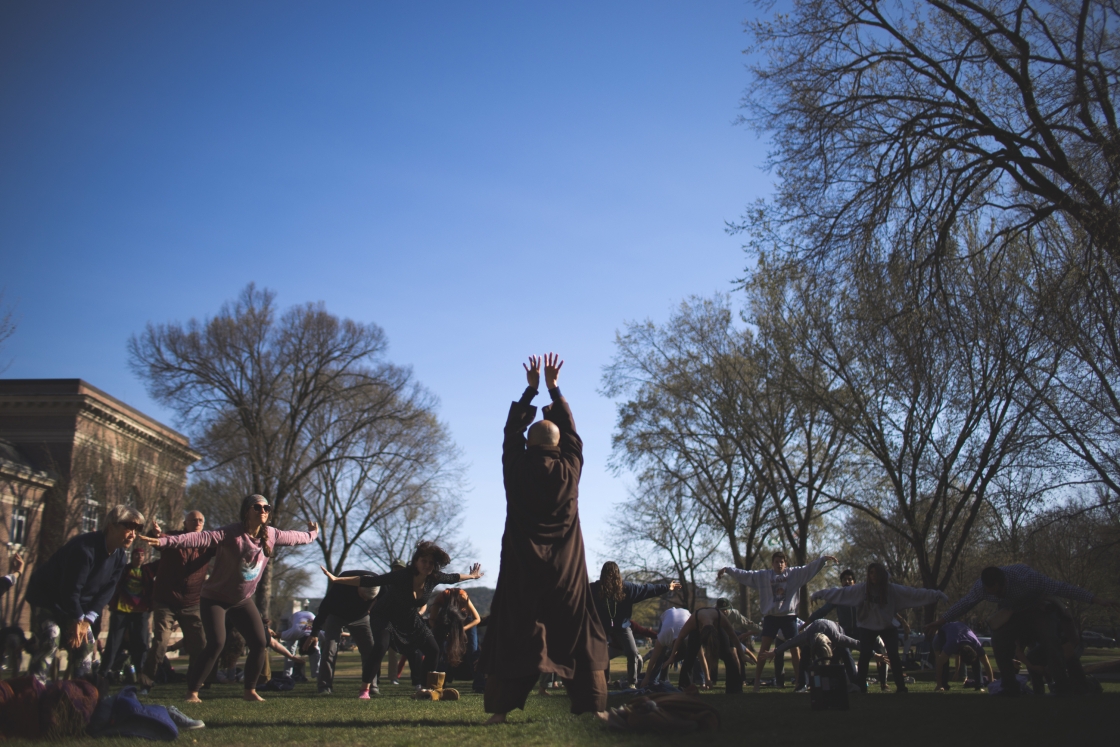
Albert Erives (photo by Joseph Mehling ’69)
Albert Erives, assistant professor of biological sciences and adjunct assistant professor of computer science, was recently honored with an award from the Faculty Early Career Development (CAREER) Program at the National Science Foundation (NSF). The award recognizes and supports junior faculty who show strong commitment to research, teaching, and the integration of the two.
Erives’ research focuses on regulatory DNA, which is responsible for switching genes on and off. This process is important in determining cell behavior.
“We now appreciate that a tremendous amount of genetic information is contained in regulatory DNA sequences,” Erives said. “Many disease-causing mutations in human DNA are not in protein-coding DNA but rather in regulatory-coding DNA. Because we don’t understand the structure of these regulatory codes, we currently do not understand many genetic diseases. Regulatory DNAs can also be used as biological sensors, with applications in drug discovery, gene therapeutics, and environmental monitoring.”
The award, which included a $625,000 grant, will allow Erives’ team to recruit additional graduate students from the Molecular & Cellular Biology, Ecology & Evolution, and Computer Science graduate programs here at Dartmouth. It will also support the goals of Erives’ “Genomic Circuitry” class, an upper level biology course open to undergraduate and graduate students alike. Students engage in independent research projects that often complement the work of Erives and his team.
“The course really blurs the line between research and teaching at multiple levels, and each supports the other in a synergistic way,” Erives said. “I think students learn best through real work, particularly when this work is free to develop in a way that activates their curiosity to learn more.”
Other Dartmouth professors who have been recently honored with NSF Career Awards include Devin Balkcom, Christopher Bailey-Kellogg, Amit Chakrabarti, Tanzeem Choudhury, Fabio Pellacini, Sean Smith, and Afra Zomorodian in the computer science department; Reza Olfati-Saber and Petia Vlahovska at the Thayer School of Engineering; Kristina Lynch, Barrett Rogers, and Robert Caldwell in physics and astronomy; Robert Grubbs in chemistry; David Peterson in the linguistics and cognitive science program, and David Bucci in psychological and brain sciences.
Grace Kouba ’13 contributed to this story.
